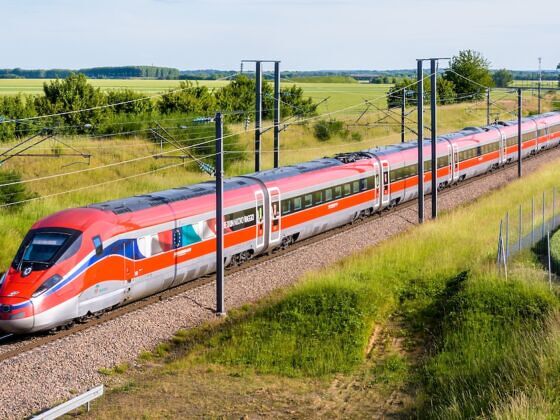France’s transport minister announced this week that the nation plans to raise taxes on flights and reallocate funds to its railways. The news comes following a ban on short-haul domestic flights with train alternatives of 2.5 hours or less that came into effect in May. Both measures aim to reignite public interest in train travel in an effort to combat climate change.

France Is Shifting From Short Flights to Trains. Here's How They Stack Up.
Concerns regarding the economic and environmental disparity between air and rail travel have been growing in the European Union. While flying is the most carbon intensive mode of travel, intra-Europe flights are almost always cheaper than comparable train journeys. This is largely due to a tax schema that favors the aviation industry. Where rail companies are subject to both VAT and energy taxes, airlines are exempt from both VAT and kerosene taxes.
According to a recent Greenpeace report, on average, plane tickets cost half as much as train tickets, despite being up to 80 times more environmentally destructive.
For many popular routes, such as Valencia to Paris, the relative cost of train travel increases significantly, with rides costing up to 12 times more than flights. Even more dramatic is the discrepancy between last-minute bookings, which can result in train tickets that are up to 30 times more expensive than plane tickets for same-day trips. Yet an inverse problem also exists: Some European rail companies limit bookings to just two or three months in advance.
Greenpeace’s report found that France has the fourth-highest price difference between air and train travel after the UK, Spain, and Belgium, averaging train tickets that are 2.6 times more expensive. Only one of the 20 routes to or from France that were analyzed, a domestic journey between Geneva and Paris, showed that train tickets were cheaper the majority of the time.
The Valencia-Paris journey has the highest cost difference of all the French routes. Over 570,000 travelers made that journey by plane in 2019. Greenpeace calculated that a full transition to train travel for the route would prevent 75,000 tons of greenhouse gas emissions each year, which would have the same impact as taking 50,000 fossil-fuelled cars off the road.
Let’s compare that to the most popular short-haul flight in the European Union with a viable train alternative, the Toulouse-Paris route, which saw 3.2 million air passengers in 2019. Banning flights between Toulouse and Paris in favor of trains could reduce greenhouse gas emissions by 244,000 tons each year, or the impact of 163,000 fossil-fuelled cars. The nearly five-hour train ride is ineligible from France’s recent ban on short-haul flights, however.
France is not the only European Union nation hoping to restore balance between air and rail travel for the good of the planet. Spain, Germany, Belgium, and Austria have all taken measures or expressed interest in discouraging short-haul flights. Amsterdam’s Schiphol Airport has pledged to ban private jets. Italy recently announced a host of new tourist-focused trains in an attempt to combat both climate change and overtourism.
The European Commission has also drafted plans to implement EU-wide changes to its energy taxes, which have not been updated since 2003, starting with minimum taxes on aviation fuels. As of this week, however, the commission’s two-year-old plans have come to a standstill as the EU struggles to reach a consensus on whether or not to start taxing aviation fuels.
While France’s recent measures signal positive change for decarbonized European travel, French Transport Minister Clément Beaune says collective participation in reaching EU climate goals is imperative.
“There’s no point in having a tax on kerosene in France if you don’t have it in Germany or Italy,” Beaune says. “We need European action.”